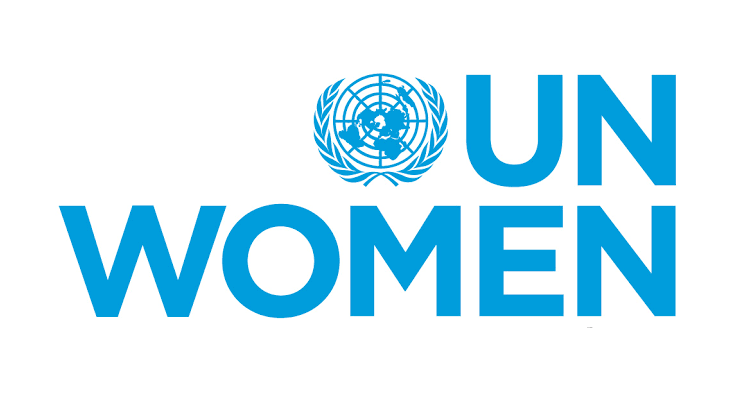The United Nations, UN Women has emphasised the importance of challenging practices and cultural norms that condone violence and deny the human rights and dignity of women and girls in Africa.
UN Women Representative to Nigeria and ECOWAS, Ms. Beatrice Eyong stated this at the Inaugural Annual High-Level Gender Based Violence Prevention Summit, in Abuja, Nigeria’s capital with Traditional and Faith Leaders in Nigeria and West African.
Ms. Eyong, said that there was need for a radical shifts in mindsets in order to truly end violence against women and girls.
She said; “Despite some progress in recent years, including increasing women’s representation in leadership in some countries within the region, women and girls in West Africa remain disadvantaged based on their gender. Over 40% of women in West Africa are victims of physical and/or sexual violence. These acts of abuse are so common that they tend to be normalized by women themselves. For instance, in one country, 34% of women believe that a husband has the right to beat his wife. Disparities persist, with West Africa grappling with high rates of child marriage and female genital mutilation. Therefore, radical shifts in mindsets are needed to end violence against women and girls. This can be achieved through dialogue and knowledge sharing among distinguished leaders from Nigeria, Niger, Sierra Leone, Liberia, and Ghana.”
Ms. Eyon, commended the Ford Foundation for their unwavering partnership on the Traditional and Cultural Leaders for Ending GBV by Advancing Advocacy, Policy, and Social Norms Change in Nigeria and West Africa (LEAP) programme.
“This initiative acknowledges the critical role of traditional and religious leaders in challenging harmful social norms perpetuating GBV, particularly violence against women and girls. GBV is not just against our women and girls, it’s against our economic growth, stability, and our emergence to become a continent that has all it takes to be great and prosperous. In a global context where women’s rights which are human rights are being pushed back against, we draw strength in the knowledge that we have strong solidarity even within this very room to pushback against the pushback. It is extremely necessary especially with ongoings in the region for example the threat to repeal the law on FGM in The Gambia as well as ongoing conflict which increases risk of violence to women and girls.
Distinguished guests, we know with your commitments and support, we can create an Africa where women and girls live free from fear of violence and where our traditional and religious practices can be upheld and celebrated without compromising on human rights,” She said.
Nigeria’s Minister of Women Affairs, Uju Ohaneye-Kennedy said addressing matters of women should be every one’s priority.
Ohaneye-Kennedy said; “How could I have done it without any of you? I need your help, my heart is heavy. The women are suffering, they are crying. They may not do it before you but they reached out to me.I am pleading because without the support of traditional and religious leaders, we can’t achieve what we want to achieve. The work I do is to protect the rights and save women and children as much as I can. I learn lessons and I push it into action immediately because I want this to succeed, and it is only through that we can liberate the women and girls it is not about religion, culture it is about doing things right and inhumanity to human.”
Also speaking at the event, the Sultan of Sokoto who is the President General, Nigeria Supreme Council for Islamic affairs, Dr. Muhammad Sa’ad Abubakar III, beckoned the traditional and religious rulers to work together to end all harmful practices against women and girls.
He said; “We are ready to give our best to the country, talk about peace and stability bases on justice, fair play and equity. This is a large turnout of traditional leaders, which shows that traditional institutions is always ready to be proactive, progressive and not what people think. The institution has the highest number of professionals in the world. we are 100 per cent loyal to Nigeria and ready to work at anytime. As religious leaders we are always ready to preach what our Holy Books ordered us to and not what our heart or minds says we should tell people. So at the end of the day, whatever programmes we are coming up with we must try and see how we can implement them.”
The Ford Foundation President, Mr. Darren Walker, who was also present at the summit, expressed the need to continue investing in the prevention of GBV to create a more equitable society for women and girls in Nigeria.
Mr Walker said; “Gender equality are instrumental in driving positive change that this country needs. Let us continue drawing on the wisdom of our traditions and collective resolve to address the scourge of GBV and create a more just equitable society for women and girls in West Africa. Together, we can achieve our shared vision of a world free from violence, bias, prejudice and discrimination.”
He was also decorated as a He4She for his commitment to advancing gender equality and women’s empowerment in Nigeria and West Africa.
The summit was organised by UN Women and Ford Foundation, to facilitate the assessment of previous commitments made towards eliminating GBV as well as to develop strategies for legislative and policy advocacy.
Mercy Chukwudiebere

